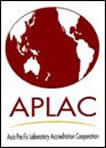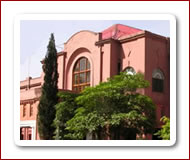Indroduction
 
Quality of food of animal origin has been a main concern and on account of poor knowledge, lack of sophisticated equipments and techniques, non-availability of suitable labs, no efforts to improve the quality of the food in Pakistan had been made. It is a bare fact that animals and plants are constantly exposed to a variety of potentially harmful chemicals/bio-chemicals and pathogens in the polluted environment.There is indiscriminate spray of pesticides on cotton and rice crops. Residues of these pesticides are transferred to animal or poultry through consumption of feed containing chemically contaminated cotton seed cake and the rice. Similarly, there is contamination of disinfectants, antibiotics, mycotoxins etc., in feed of poultry and dairy animals that are excreted in milk, meat or eggs and subsequently enters in our food chain.
These chemical or biological toxins or pathogens are posing serious human health hazards. The toxic effects in human may be manifested at population, individual, tissue, cellular or molecular level. Some effects such as death, acute respiratory illness, skin rashes, toxic hepatitis are apparently visible while some time hidden serious efforts such as immuno-suppression, reproductive/fetal abnormalities, teratogenic, mutagenic/carcinogenic effects etc. Reduce growth are not uncommon.
The nervous system is a prominent target when toxins can induce acute psychosis, memory impairment, neuropathy and tremor. Adverse consequences of such potential toxicities are illness leading to disability, anxiety, stress, chronic frustration, anger and emotional discomfort.
|
QUALITY OPERATIONS LABORATORY
AN - ISO-17025:2005 ACCREDITATED LAB |
General public is not aware of hidden and harmful effects of many compounds and foods of animal origins on human health. The World Trade Organization (WTO) has emphasized on standardized frame work of quality control of food items of animal origin for export or import purpose and this has been elaborated in the Sanitary and Phyto-Sanitary (SPS) measures under trade in goods. Moreover, the laboratory shall take care of Technical barriers on Trade (TBT)trade.
Objectives
Overall aims to establish the laboratory facilities at the university are:
- To meet the international standards of exports and imports of livestock commodities as defined in the charter of W.T.O.
- To test the food ingredients of animal and plant origin for national health and security reasons
- To improve the human and animal health
- To maintain national standards for human foods of fish, livestock/poultry origins
- To provide research facilities for university postgraduate students
- To provide guidelines about the sanitary and phyto-sanitory measures to exporters of livestock or food of animal origins.
|







